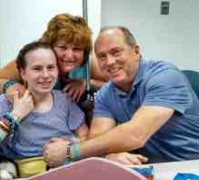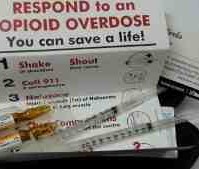
Patient involvement in healthcare decisions can save your life

These types of doctor and patient conversations rarely occur. That’s why patient involvement is so important. (Photo credit: Wikipedia)
Patient involvement in healthcare decisions
When a patient visits a doctor, it is all to easy to assume that the physician knows best since he or she has the specialized training.
Physicians are often held in god-like reverence leaving patients fearful of questioning their decisions.
That type of mindset could cost you your life.
Doctors are human and they can, and do, make mistakes.
Sometimes fatal ones.
Take the case of Libby Zion.
In 1984, Zion was a 18-year-old girl who was suffering from a high fever and an ear ache.
Her parents brought her to New York Hospital to be treated after Zion’s father’s checked with his family physician.
Eight hours later Libby Zion was dead.
Libby was using a drug called Nardil, an anti-depressant.
When one of the resident Doctors examined herand noticed her discomfort, he prescribed Demerol to calm her down.
It did not work and she became increasingly agitated.
Another resident, by phone, ordered Zion to be placed in a straight jacket and ordered an anti-psychotic medication to be given to her.
Later, her arms and ankles were tied down to the bed.
She eventually feel asleep and when her temperature was taken approximately 2 hours later, it was a life threatening 108 degrees and she went into cardiac arrest and died.
It is believed that Libby Zion was suffering from a type of drug poisoning known as serotonin syndrome and the overworked and inexperienced residents failed to properly and accurately diagnose her.
Her father, Sidney Zion, a former attorney, waged a legal battle both criminally and civilly against the hospital for malpractice for what he referred to as his daughters murder.
His actions eventually led to a complete overhaul in how many hours residents were allowed to work and how they are supervised.
Patients can learn from this landmark case on how to better protect themselves.
Residents still work long hours and often supervise many, many patients so it is important to be involved and to have people advocate for you if you are unable to do so yourself.
Patients, for example, should keep a list of all medications that they take, including herbal preparations and over the counter medications, and also keep this medication list in an easily accessible place in case of an emergency.
If a doctor does prescribe a prescription medication, be sure to specifically ask if there are any known interactions.
Even if you are told there are not any known interactions, it still may be a good idea to conduct a search on Google or consult a consumer medical book to double check before taking the medication.
If there are any interactions that were discovered during your research, be sure to call your doctor before taking the medication.
Patient involvement in healthcare decision can save your life.
Related articles






 Follow
Follow



